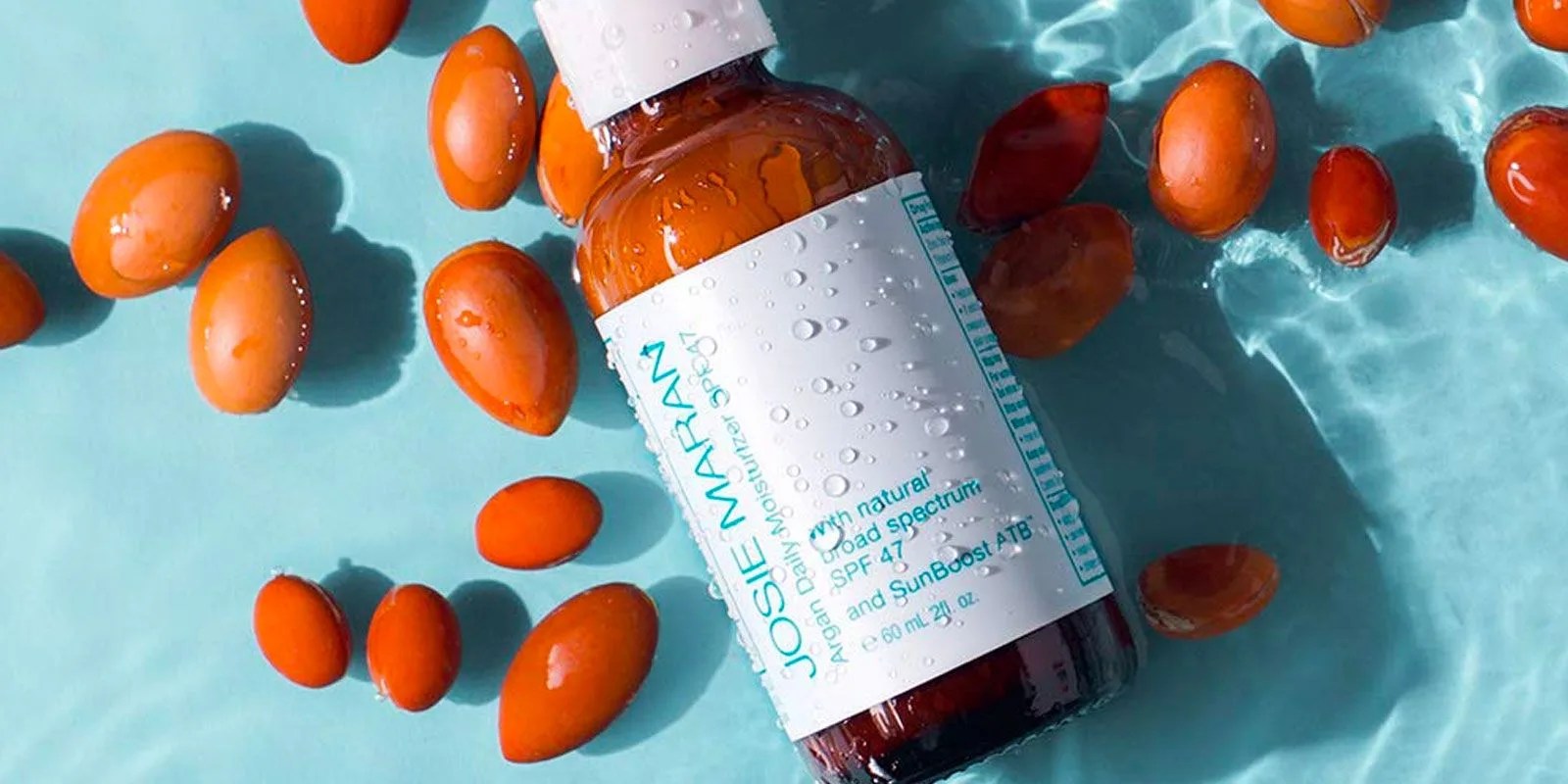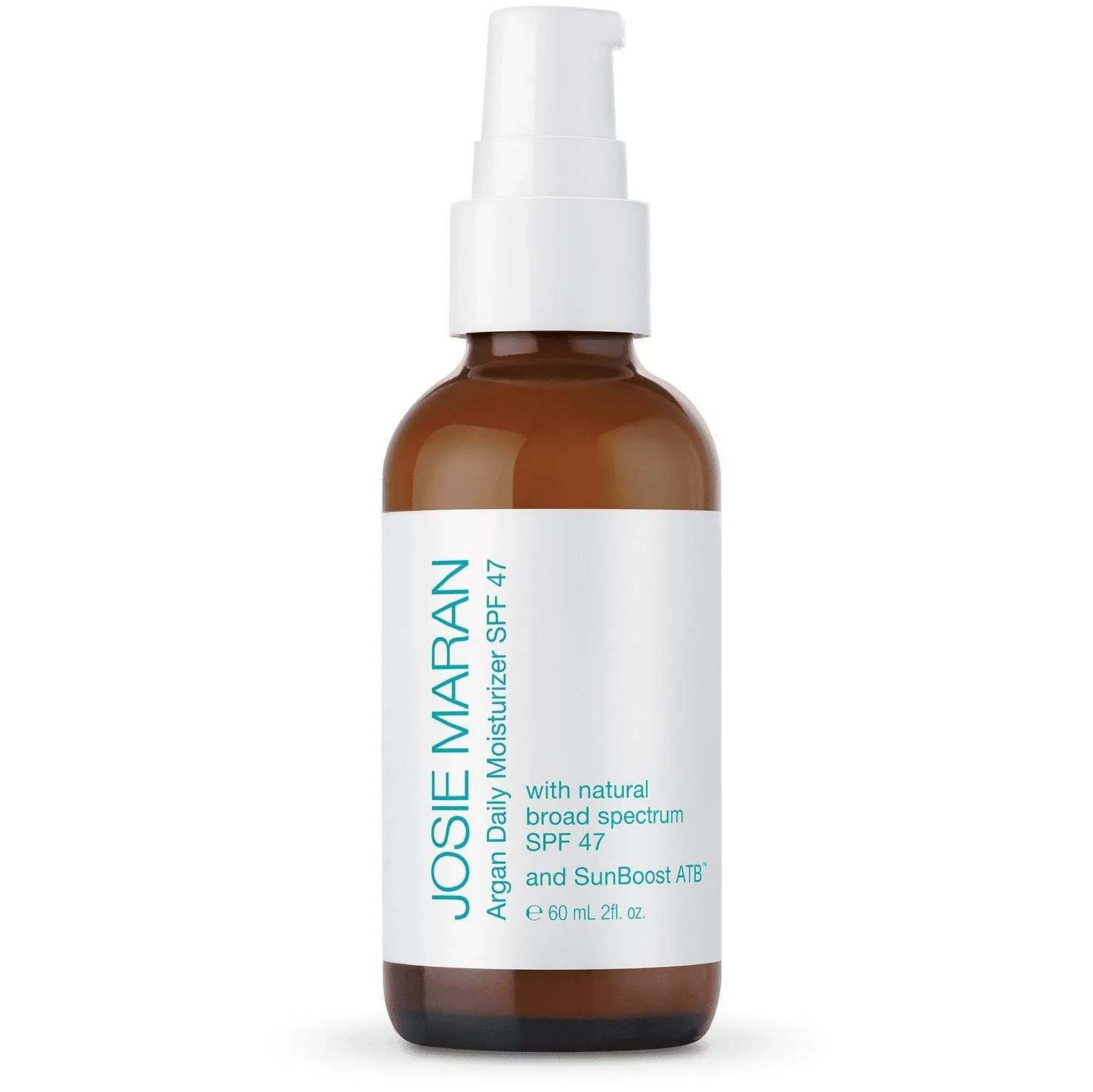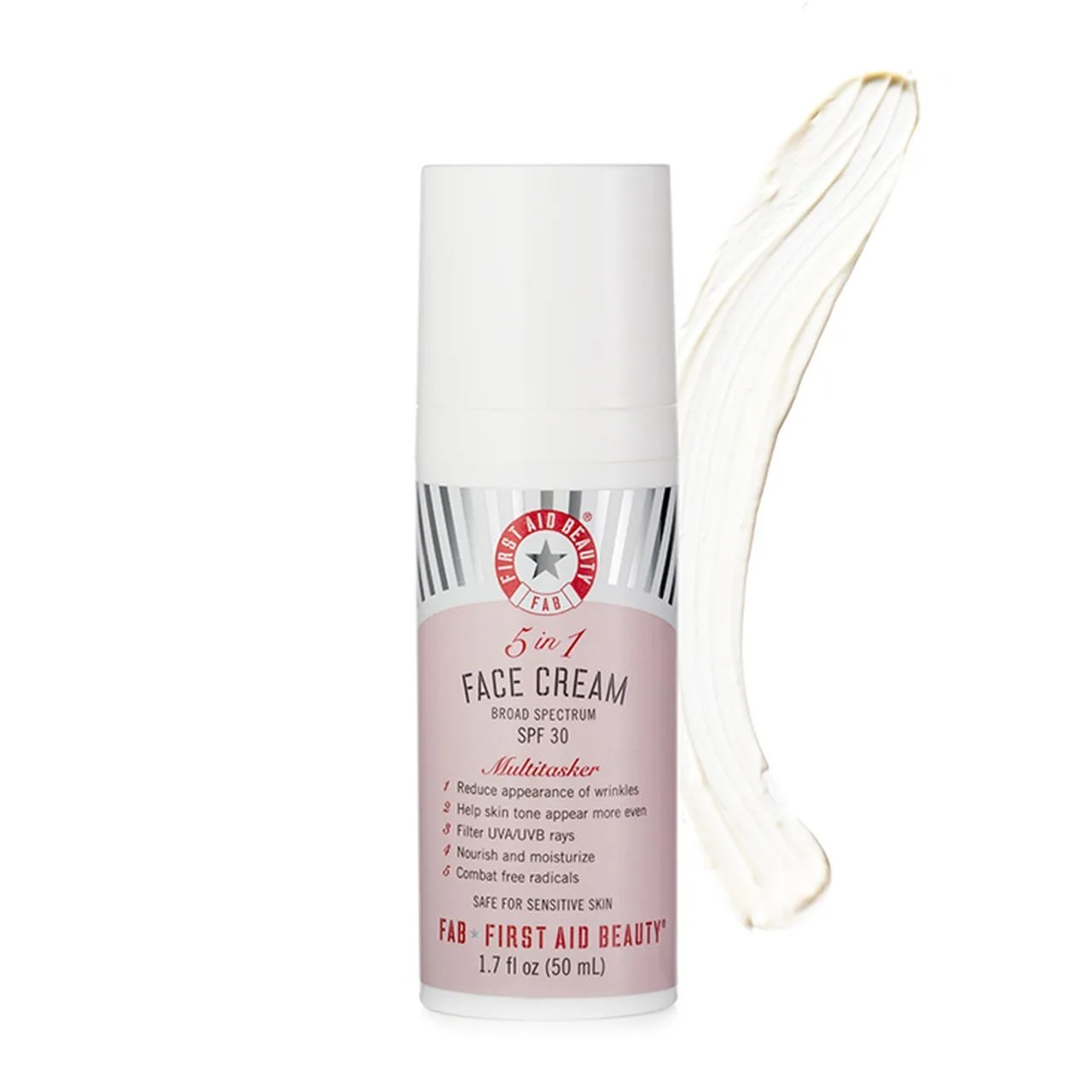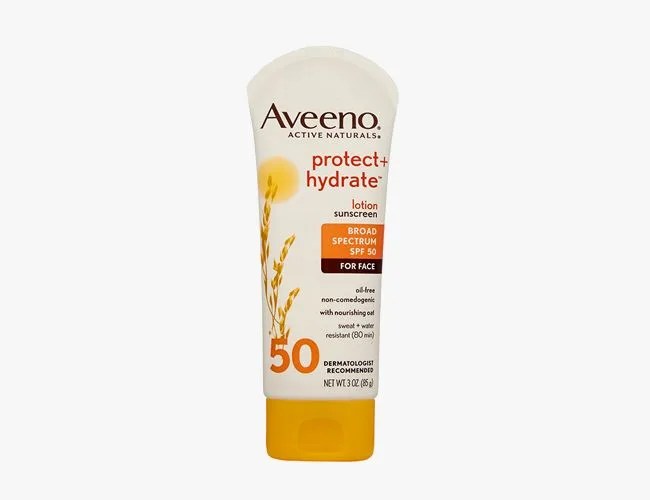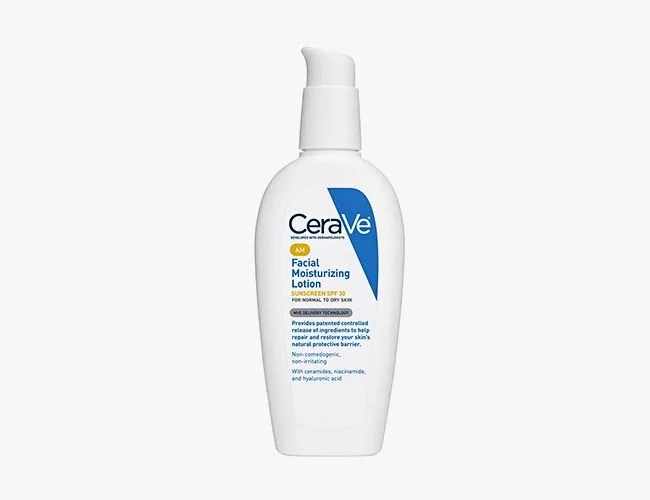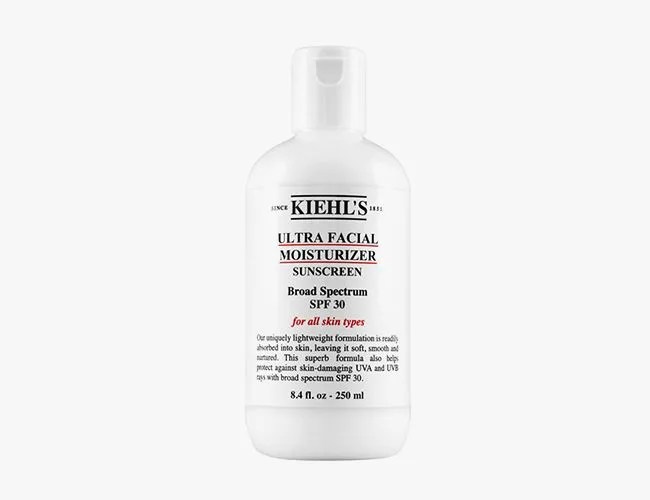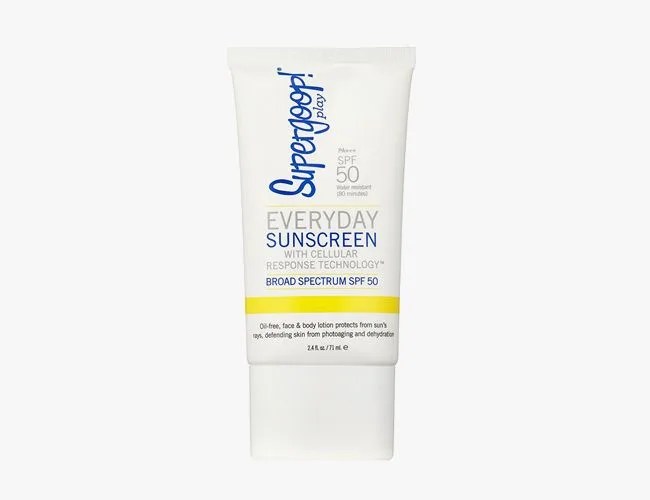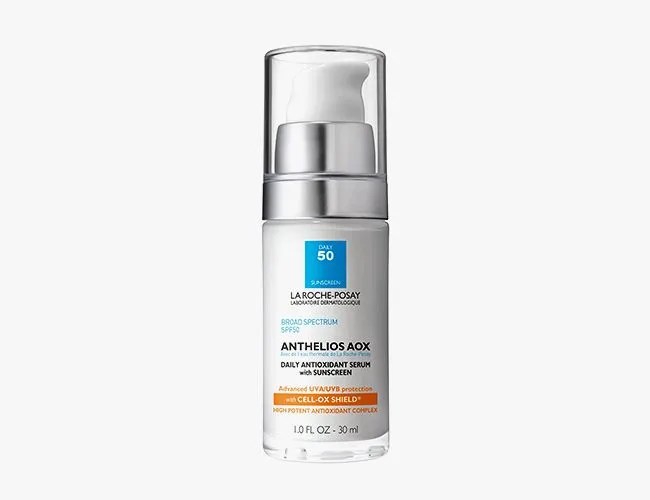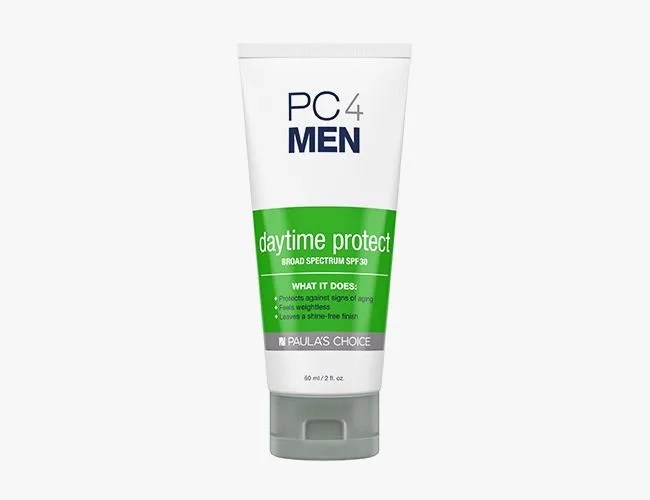Bar none, the most common form of cancer found in humans is nonmelanoma skin cancer. “Every year, there are over three million new cases a year of nonmelanoma skin cancers in the United States alone,” says Dr. Scott Dunbar, a skin cancer surgeon and cosmetic dermatologist for Schweiger Dermatology Group in New York City. (Breast cancer, the second most common form of cancer in the United States, records less than 250,000 new cases per year.) “Fortunately, the vast majority of skin cancers are easy to remove,” he adds. “But even if they are not life threatening, you can end up trading that skin cancer for an arduous surgery and some scarring.”
Most professionals agree that the main forms of nonmelanoma skin cancer — basal cell carcinoma and squamous cell carcinoma — are related to sun exposure, a necessary variable of everyday life. The good news, however, is that the risks associated with developing symptoms of the disease can be easily reduced, starting with the obvious: sunscreen. “I encourage my patients to wear it everyday,” says Dunbar, even though he knows not all of them will. “It’s like flossing. A lot of people don’t floss twice a day, like you should. But if you’re doing it a few times a week, that’s better than never.”
To make it easier, brands old and new have started to release sun-shielding lotions, often labeled simply as “moisturizers with SPF.” These not only protect skin from harmful UV rays, but avoid the smell and greasy texture of traditional sunscreens. “Even if someone has basically zero genetic risk factor for skin cancer, chronic exposure to the sun will dramatically increase the risk of skin cancer,” says Dunbar. “But if someone has taken the time to protect themselves from the sun over the course of their lifetime, that risk goes down. Way, way down.”
Understanding SPF
SPF stands for “sun protection factor,” and rates the fraction of harmful UV rays that reach the skin during a period of time. “As the sunscreen industry has matured over the past few decades, people are taking those numbers a little less seriously,” says Dr. Scott Dunbar. “In my opinion, sunscreen is either good enough or not good enough. Dermatologists are dichotomous that way. The standard is: SPF 30 or better, always. If you’re going to put on a sunscreen, put on the highest number that you’ll reliably use. If the 100 feels really greasy and you’re not going to wear it, then it’s not as good as a 30 that you will wear.
“Sunscreens, regardless of the SPF, are only rated to work for two hours; higher SPFs don’t mean that sunscreen will last any longer. So no matter what you prefer, reapplication is absolutely essential.”
Eucerin Daily Protection Face Lotion
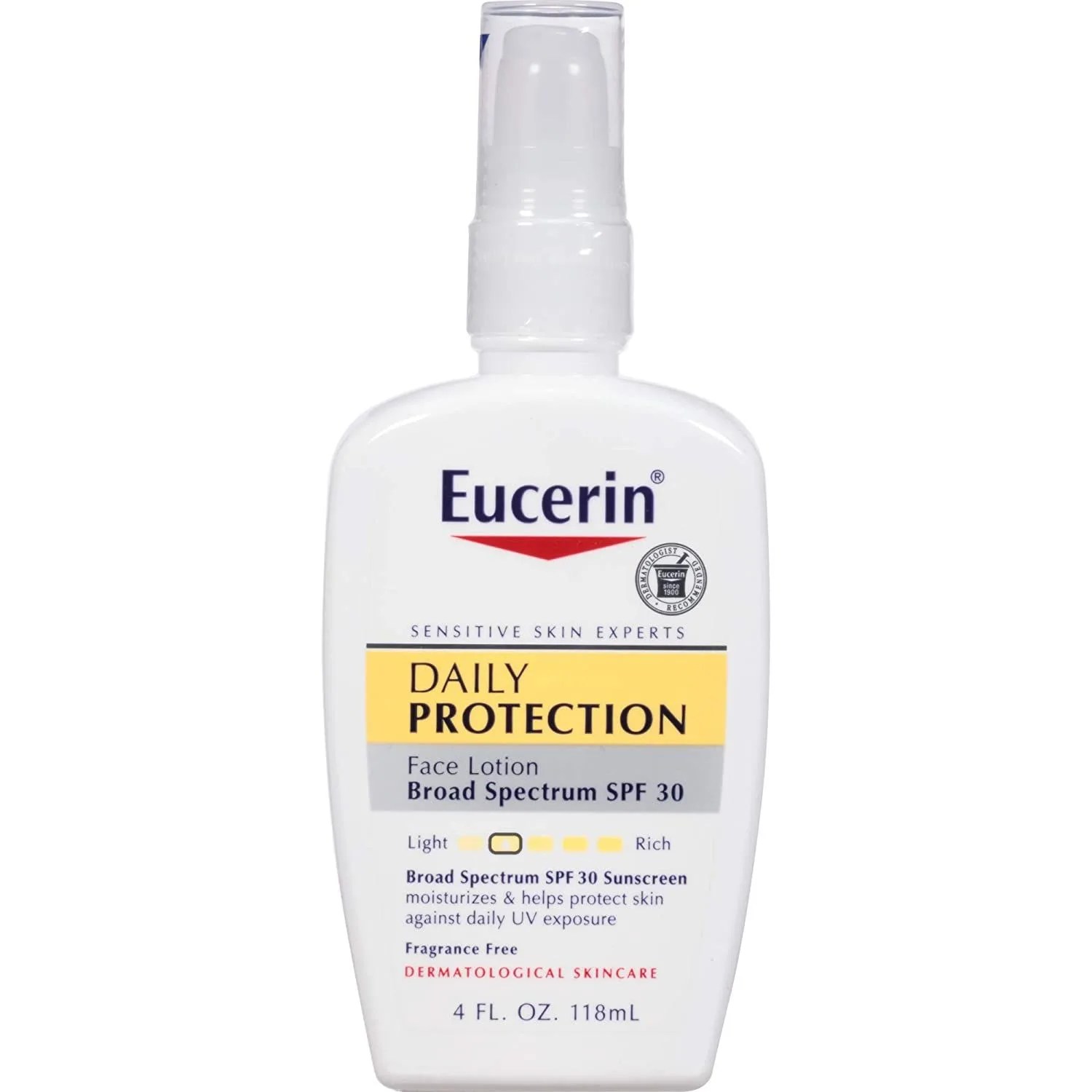 Courtesy Amazon
Courtesy AmazonFor Sensitive Skin, on a Budget: Eucerin’s Daily Protection moisturizer is geared toward sensitive skin, with a lightweight, non-greasy feel and fragrance-free formula. It’s non-comedogenic, so it won’t clog your pores while protecting your skin against both UVA and UVB rays. Plus, it’s easy on the wallet.
